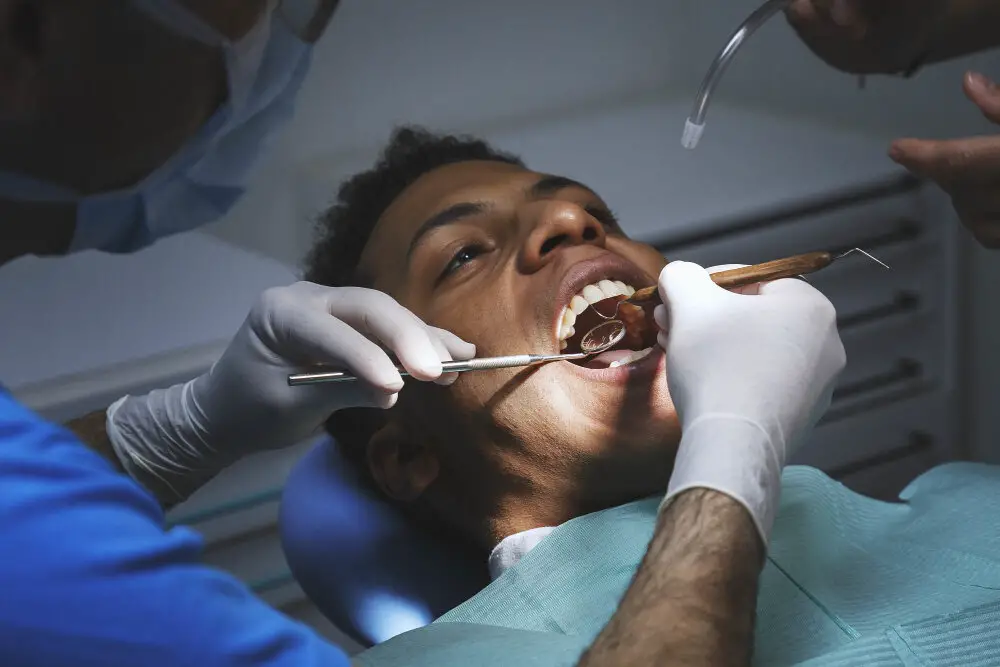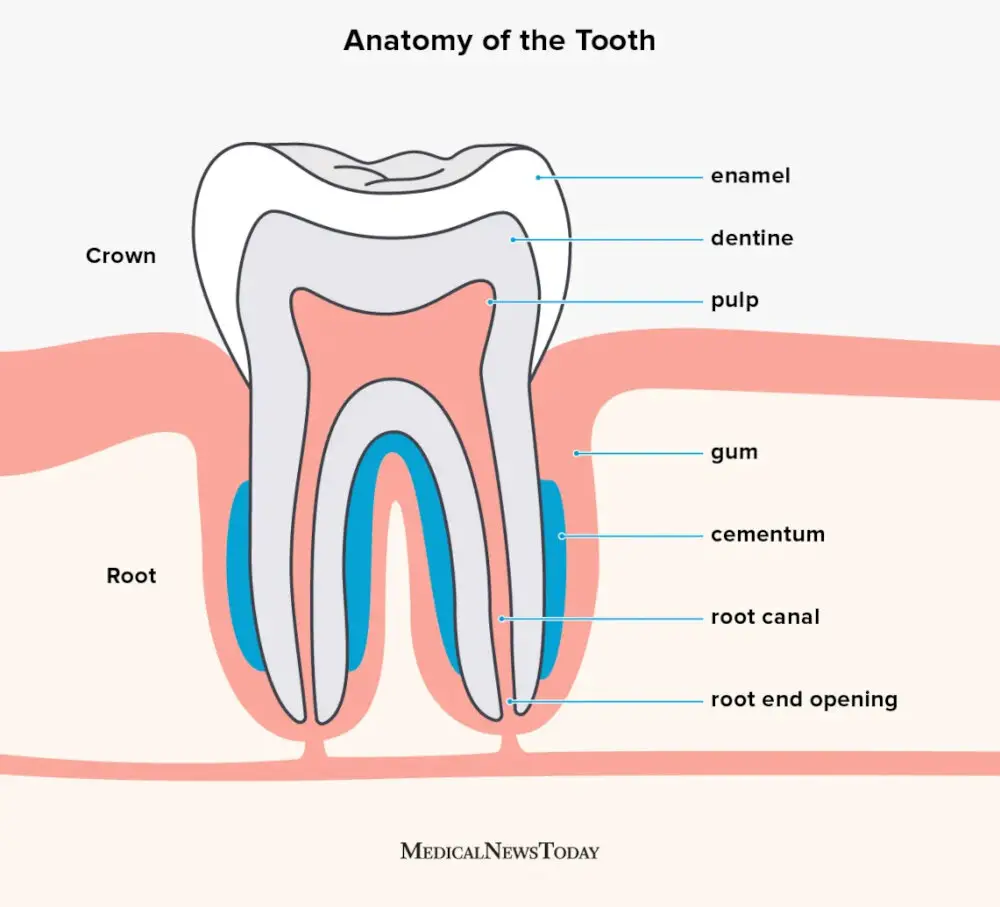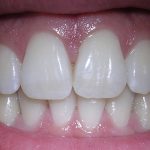Affordable Oral Care: How Much Does a Deep Teeth Cleaning Cost Without Insurance?

Oral health is an essential aspect of our overall well-being, and it requires regular care and maintenance. One of the most critical elements of dental hygiene is getting your teeth cleaned regularly. However, not everyone has access to dental insurance or the means to pay for expensive dental procedures out of pocket. This raises the question, how much does a deep teeth cleaning cost without insurance?Deep teeth cleaning, also known as scaling and root planing, is a specialized dental procedure that involves removing plaque and tartar buildup from below the gum line. This type of cleaning is necessary for people who have advanced gum disease or periodontitis. Unfortunately, the cost of deep teeth cleaning can be quite high, making it unaffordable for many people. In this article, we will explore the average cost of deep teeth cleaning without insurance, as well as some affordable oral care options that can help you maintain good dental hygiene without breaking the bank.
Deep teeth cleaning, also known as scaling and root planing, is a non-surgical treatment for gum disease. It involves removing plaque and tartar buildup from the teeth and gums, as well as smoothing out rough spots on the roots of teeth to prevent further buildup. This procedure is typically recommended for individuals who have gum disease, as it is a more intensive cleaning than a regular dental cleaning. The cost of deep teeth cleaning can vary depending on factors such as location, severity of gum disease, and insurance coverage. However, for those without insurance, the cost can range from a few hundred to over a thousand dollars. It is important to prioritize oral care and address any gum disease as soon as possible to prevent further complications and costs down the line.
Oral care is crucial for maintaining good overall health. Neglecting dental hygiene can lead to various oral health problems such as cavities, gum disease, and bad breath, which can affect a person’s confidence and quality of life. Additionally, poor oral health has been linked to several other health conditions such as heart disease, diabetes, and even Alzheimer’s disease. Therefore, it is important to practice good oral hygiene habits such as brushing twice a day, flossing daily, and visiting the dentist regularly for checkups and cleanings. While the cost of dental care can be a barrier for many people, there are affordable options available such as community health clinics and dental schools that offer low-cost services. Investing in oral care can lead to a healthier and happier life in the long run.
Dental insurance plays a significant role in determining the cost of dental treatment. Without insurance, the cost of a deep teeth cleaning procedure can be quite high. However, having dental insurance can help to make oral healthcare more affordable for individuals. Insurance providers negotiate discounted rates with dental care providers to keep costs down for their customers. This means that individuals with insurance can expect to pay a lower out-of-pocket cost for a deep teeth cleaning than those without insurance. Additionally, some insurance plans cover preventive care like routine cleanings and exams, which can help individuals avoid more costly dental procedures in the future. Overall, having dental insurance can make a significant difference in the affordability of oral healthcare.
Factors Affecting Deep Teeth Cleaning Cost

When it comes to oral care, deep teeth cleaning is an essential procedure that helps remove plaque, tartar, and other harmful substances from your teeth and gums. However, the cost of deep teeth cleaning can vary depending on several factors. One of the primary factors affecting the cost of deep teeth cleaning is the severity of your dental condition. If you have severe gum disease or extensive buildup of plaque and tartar, it may require more extensive treatment, which can increase the cost of the procedure. Additionally, the number of teeth that require deep cleaning can also impact the cost, as it may require more time and resources to clean a larger area. Another factor that can affect the cost of deep teeth cleaning is the location of the dental clinic. Dental clinics located in urban areas tend to charge more for their services than those in rural areas. This is because the cost of living and operating expenses in urban areas is higher. Additionally, the experience and expertise of the dentist or dental hygienist performing the procedure can also impact the cost. Highly skilled professionals with more experience may charge more for their services, but they may also provide better results and reduce the likelihood of complications that can lead to additional costs. Therefore, it is important to consider these factors when searching for affordable oral care and finding the best deep teeth cleaning cost without insurance.
The severity of dental issues can vary greatly and can often lead to significant discomfort and pain. Neglecting oral care can result in a buildup of plaque and tartar, eventually leading to gum disease, tooth decay, and even tooth loss. Deep teeth cleaning, also known as scaling and root planing, is a common treatment for patients with severe gum disease. This procedure involves removing bacteria and tartar from below the gum line and smoothing the tooth roots to prevent further infection. Without insurance, the cost of a deep teeth cleaning can be daunting, but it is crucial to address severe dental issues to prevent further damage and improve overall oral health.
The geographic location of a dental office can greatly impact the cost of a deep teeth cleaning without insurance. Urban areas tend to have higher prices due to the higher cost of living and operating a business in a city. On the other hand, rural areas may have lower prices due to lower overhead costs. Additionally, the state in which the dental office is located can also affect the cost of a deep teeth cleaning. States with a higher cost of living, such as California or New York, will likely have higher prices compared to states with a lower cost of living, such as Missouri or Arkansas. It is important to consider geographic location when searching for affordable oral care options.
There are different types of dental professionals that can provide oral care services. Dentists are the primary providers, and they can perform a wide range of procedures, such as cleanings, fillings, extractions, and root canals. Dental hygienists are licensed professionals who specialize in preventive care, including cleanings and screenings, and they work alongside dentists. Orthodontists are dentists who have completed additional training to correct misaligned teeth and jaws, typically with braces or aligners. Periodontists are dentists who specialize in the prevention, diagnosis, and treatment of gum disease and other conditions that affect the supporting structures of the teeth. Oral surgeons are dentists who perform surgical procedures, such as wisdom teeth removal, dental implants, and jaw surgeries. By understanding the different types of dental professionals, patients can choose the right provider for their needs and budget.
In some cases, a deep teeth cleaning may not be enough to fully address oral health issues. If you have advanced gum disease or periodontitis, additional treatments may be necessary to restore your oral health. This could include scaling and root planing, which involves removing plaque and bacteria from the roots of your teeth and smoothing the tooth surface to prevent future buildup. In extreme cases, surgery may be needed to repair damage to the gums and bone. It’s important to work closely with your dentist to develop a comprehensive treatment plan that addresses all of your oral health needs. While these additional treatments may add to the overall cost of your dental care, they can help prevent more serious and expensive issues down the line.
Cost of Deep Teeth Cleaning Without Insurance

When it comes to maintaining good oral health, getting a deep teeth cleaning is a necessary procedure that can help prevent gum disease, tooth decay, and other dental issues. However, the cost of deep teeth cleaning without insurance can be a concern for many people. The average cost of a deep teeth cleaning can range from $200 to $400 per quadrant, with four quadrants in total for a complete treatment. This means that the total cost of deep teeth cleaning without insurance can be as high as $1600, which can be a significant financial burden for many individuals and families. Fortunately, there are some ways to reduce the cost of deep teeth cleaning without insurance. Many dental clinics offer payment plans, which allows patients to spread the cost of treatment over several months. Additionally, some clinics offer discounts for cash payments or for patients who pay upfront. It is also worth checking if there are any community health clinics or dental schools in your area, which may offer deep teeth cleaning at reduced rates. By exploring these options, it is possible to make deep teeth cleaning more affordable and accessible for everyone, regardless of their financial situation or insurance coverage.
When it comes to oral care, costs can add up quickly. For those without dental insurance, the thought of paying out of pocket for a deep teeth cleaning can be daunting. The average cost breakdown for a deep teeth cleaning without insurance can vary depending on location and the severity of the cleaning needed. On average, a deep teeth cleaning can cost anywhere from $75 to $400 per quadrant, with the overall cost ranging from $300 to $1,600 for a full mouth cleaning. It is important to remember that preventative care, such as regular teeth cleanings, can help to avoid the need for more expensive procedures down the line.
The cost of deep teeth cleaning varies depending on the location. For example, in some cities, the cost can range from $75 to $200, while in others, it can go up to $400 or more. This is due to the cost of living, the demand for dental services, and the availability of dental professionals in the area. Additionally, the type of dental clinic and its reputation can also impact the cost. For instance, a high-end dental clinic in a prime location will likely charge more for its services than a clinic in a less desirable area. Therefore, it is essential to research and compare the costs of different dental clinics in your area before scheduling a deep teeth cleaning.
When it comes to oral care, many people are concerned about the cost of treatments, especially without insurance coverage. One of the most common procedures is a deep teeth cleaning, which removes plaque and tartar buildup below the gum line. Without insurance, the cost of a deep cleaning can vary greatly depending on the location and provider, ranging from $300 to $900 per quadrant. In contrast, with insurance coverage, the cost can be significantly reduced, with many plans covering the procedure at little to no cost to the patient. Therefore, it is crucial for individuals to explore their insurance options and compare costs to ensure that they receive affordable oral care.
Affordable Oral Care Options

Taking care of your oral health is essential, but it can be expensive, especially if you don’t have dental insurance. However, there are affordable oral care options available that can help you maintain healthy teeth and gums without breaking the bank. One of the best ways to save money on dental care is to practice good oral hygiene at home. Brushing and flossing your teeth twice a day is essential to remove plaque and prevent cavities. You can also use mouthwash to kill bacteria and freshen your breath. Moreover, you can opt for an electric toothbrush, as it can be more effective in removing plaque than a manual toothbrush. Another affordable oral care option is to visit a dental school. Dental schools offer low-cost dental services to patients as part of their training program. Students are supervised by licensed dentists, so you can be assured of quality care. Moreover, dental schools offer a wide range of services, from routine cleanings to more complex procedures, at a fraction of the cost of a private practice. You can also consider joining a dental savings plan, which is an alternative to traditional dental insurance. These plans offer discounts on dental services from participating providers, and you only pay an annual fee to join. With these affordable oral care options, you can maintain healthy teeth and gums without spending a fortune.
Discount dental plans are an excellent option for individuals and families who are looking for a way to save money on their oral care expenses. These plans typically offer significant discounts on a variety of dental services, including cleanings, fillings, and even major procedures like root canals and extractions. Unlike traditional insurance plans, which often come with high premiums and deductibles, discount dental plans are usually quite affordable and accessible to anyone, regardless of their income or employment status. By joining a discount dental plan, patients can enjoy significant savings on their dental care without having to sacrifice quality or convenience. Whether you’re dealing with a specific dental issue or simply looking for a way to maintain your oral health on a budget, a discount dental plan may be the perfect solution for you.
Payment plans and financing options provide an alternative solution to paying for expensive dental procedures, such as deep teeth cleaning, without insurance. Many dental clinics offer payment plans that allow patients to pay for their treatment in installments over an extended period. Financing options, on the other hand, allow patients to borrow money to pay for their dental care and then pay back the loan in monthly installments with interest. These options make dental care more accessible and affordable for those who cannot afford to pay for it all at once. Before choosing a payment plan or financing option, it is important to read the terms and conditions carefully to ensure that you understand the interest rates, fees, and repayment schedule.
Community health clinics play a crucial role in providing affordable oral care to underserved populations. These clinics are often located in low-income areas and offer a range of services, including deep teeth cleaning, at a reduced cost or on a sliding scale based on income. In addition to providing dental care, community health clinics also offer education on proper oral hygiene and disease prevention. This not only improves the overall oral health of the community but also helps to prevent more serious health issues, such as heart disease, that can arise from poor oral health. By providing accessible and affordable oral care, community health clinics help to bridge the gap in healthcare disparities and promote a healthier community.
Dental schools are excellent alternatives for affordable oral care services, including deep teeth cleaning, especially for those without insurance. These educational institutions provide supervised and high-quality dental services to the public by trainee dentists under the guidance of experienced faculty members. The fees charged by dental schools are typically lower than those of private dental clinics or hospitals. Additionally, dental schools often offer payment plans or reduced fees based on income, which makes them an attractive option for individuals with limited budgets. While the idea of being treated by a student dentist may be daunting, it is worth noting that they are well-trained and closely supervised by experienced professionals who ensure that the quality of dental services provided is top-notch.
Regular oral care and professional cleanings are crucial for maintaining good oral health. Neglecting proper oral hygiene can lead to a buildup of plaque and tartar, which can cause gum disease, tooth decay, and even tooth loss. Professional cleanings performed by a dental hygienist remove any buildup of plaque and tartar that cannot be removed by brushing and flossing alone. This helps prevent gum disease and cavities and keeps your teeth and gums healthy. Additionally, regular check-ups with a dentist can detect any potential dental issues early on, which can save you time and money in the long run. Taking care of your oral health not only helps prevent painful and costly dental problems, but also contributes to your overall health and well-being.
For those without dental insurance, finding affordable oral care can be a challenge. However, there are several options available to help individuals receive the necessary dental treatment without breaking the bank. One option is to look into community health clinics, which often offer reduced-cost dental services to those in need. Another option is to consider dental schools, where students provide dental care under the supervision of licensed professionals at a lower cost. Additionally, some dentists offer payment plans or financing options to help patients spread out the cost of treatment over time. By exploring these and other options, individuals can find affordable dental care and maintain good oral health without insurance.
Oral health is an essential aspect of overall well-being that should be prioritized by everyone. Neglecting dental care can lead to painful and costly problems down the road, which is why it is crucial to seek out affordable options for preventive care. Regular brushing and flossing are essential for maintaining healthy teeth and gums, but seeing a dentist for routine cleanings and checkups is equally important. Many people avoid seeking dental care due to the cost, but there are resources available to make it more accessible. Community health centers, dental schools, and government programs offer affordable dental services for those in need. Investing in oral health today can save you from significant expenses in the future and help you maintain a healthy and confident smile.
Conclusion

In conclusion, obtaining affordable oral care can be a challenge, especially for those without insurance. Deep teeth cleaning is a crucial dental procedure that helps prevent gum disease, tooth decay, and other dental problems. Although the cost of this procedure varies depending on several factors, including location, complexity of the procedure, and the dentist’s experience, it is possible to find affordable options. Patients can consider negotiating with their dentist, seeking dental schools, or exploring community health clinics. It is essential to prioritize oral health to prevent more severe dental problems that may require more expensive procedures. With diligence and research, patients can find affordable and high-quality oral care that fits their budget.






